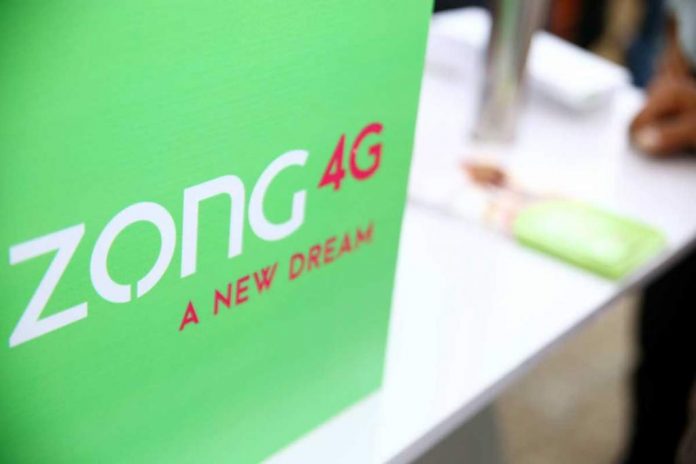ISLAMABAD: The Rs108 billion deal for Pakistan Telecommunication Company Ltd (PTCL) to acquire Norwegian telecom giant Telenor’s Pakistan operations continues to languish in limbo as the Competition Commission of Pakistan (CCP) hears a complaint made against the acquisition by PTCL’s rival Zong.
In a hearing on Wednesday, Zong raised objections to the acquisition, arguing that it could significantly distort the competitive landscape of Pakistan’s telecom sector. Zong contended that PTCL, which also owns Ufone, would have a combined market share of 36.5%. The current market leader is Jazz, which has a 37% share and the acquisition would throw Zong into a distant third place acquisition of Telenor’s Pakistan business would push the combined company’s market share to 36.5%, close to Jazz’s 37% share, leaving Zong at a distant third place with just 25.6% of the market.
At the heart of the case is the issue of spectrum allocation, a key determinant of telecom companies’ ability to offer efficient mobile services. During the hearing, government officials informed the CCP that if the deal were to go through, the merged Ufone-Telenor entity would control 34.4% of the total spectrum allocated in Pakistan. Spectrum, which is a limited and highly regulated resource, is essential for maintaining service quality and network coverage.
Zong’s representatives argued that this consolidation would create a duopoly in the telecom market, drastically reducing competition. The CCP is now tasked with deciding whether such a concentration of market power is permissible under Pakistan’s competition laws, or whether it would harm consumers by reducing the incentives for competitive pricing, innovation, and service quality.
Foreign investor exits
Behind this entire story is another concerning tale: Telenor’s decision to exit from Pakistan. A Norwegian company, Telenor entered the Pakistani market in 2005, investing over $2 billion in Foreign Direct Investment (FDI) over the years. However, the Norwegian telecom giant’s decision to divest from Pakistan is part of a broader restructuring of its Asian operations.
In 2023, Telenor merged its Thailand and Malaysian operations with local companies, creating larger, more profitable regional units. A similar attempt was made in Pakistan, but the Norwegian firm was unable to finalize a local merger. “We also tried to do a merger in Pakistan, but we didn’t manage to get that, and when we saw this wasn’t happening, the second-best alternative was to arrange a sale,” said Telenor CEO Sigve Brekke when the sale was announced in December 2023.
Brekke explained that the decision was driven by both structural challenges in the Pakistani market and the need to maximize value for Telenor’s shareholders. In the first nine months of 2023, Telenor Pakistan contributed 2.6 billion kroner ($247 million) in service revenue and 1.4 billion kroner ($133 million) in earnings before interest, tax, depreciation, and amortization (EBITDA) to the Norwegian group. Yet, these figures weren’t enough to justify a continued presence in the country, given the company’s broader strategic realignment in Asia.
Telecom companies in Pakistan have one of the worst average revenue per user (ARPU) in the world, at $0.8/month and for the Norwegian company, ARPU was a big concern, considering that other subsidiaries of the Telenor group in countries like Malaysia, Thailand and Bangladesh were doing much better. Telenor entered the Pakistani market in 2005 and over the years managed to amass a subscriber base of approximately 45 million customers. However, operating in a highly saturated market presents its own challenges. One such challenge is the steady decrease in ARPU, which is a concern for the entire industry.
The company restructured its operations to focus on low-value customers who primarily demanded voice and SMS services. With the rise of 3G/4G services and OTT apps like WhatsApp, Telenor began losing its stronghold in voice and SMS services and eventually exited the Indian market in 2017. The events leading to Telenor’s decision to exit the Pakistani market closely resemble what happened in India.
Read more: Telenor finally packs up shop in Pakistan, what all will change?
Nothing to do with Easypaisa
If the deal goes through, PTCL, which already owns the Ufone mobile network, would acquire Telenor’s 45.2 million customers. Combined with Ufone’s 25.2 million subscribers, this would give PTCL over 70.4 million users in Pakistan, nearly equal to Jazz’s total number of subscribers.
However, contrary to some claims, it is also important to address that despite being closely integrated with Telenor Pakistan, the leadership and ownership of Telenor Microfinance Bank and, by extension, of Easypaisa remains the same. The bank as of now is jointly owned by Ant group (Alibaba) and Telenor’s Norwegian parent company. It was made clear by the PTCL leadership that the Share Purchase Agreement referred to the operations of Telenor, the telco alone. With the previous ownership structure, Telenor Microfinance Bank enjoyed cross-marketing and other preferential pricing like the SMS costs for transaction prompts on USSD supported easypaisa accounts. These are likely to be discontinued/ However, the Telenor Group will still retain its ownership of the digital bank unless announced otherwise.




